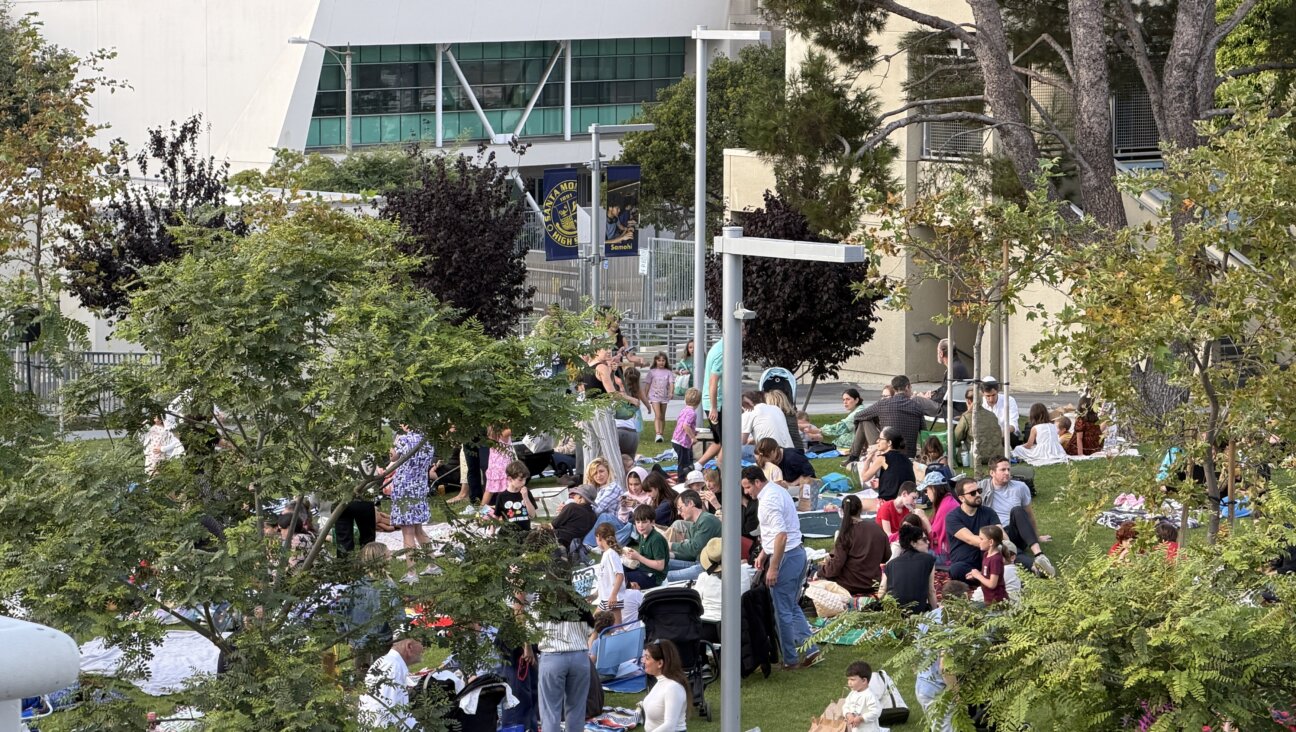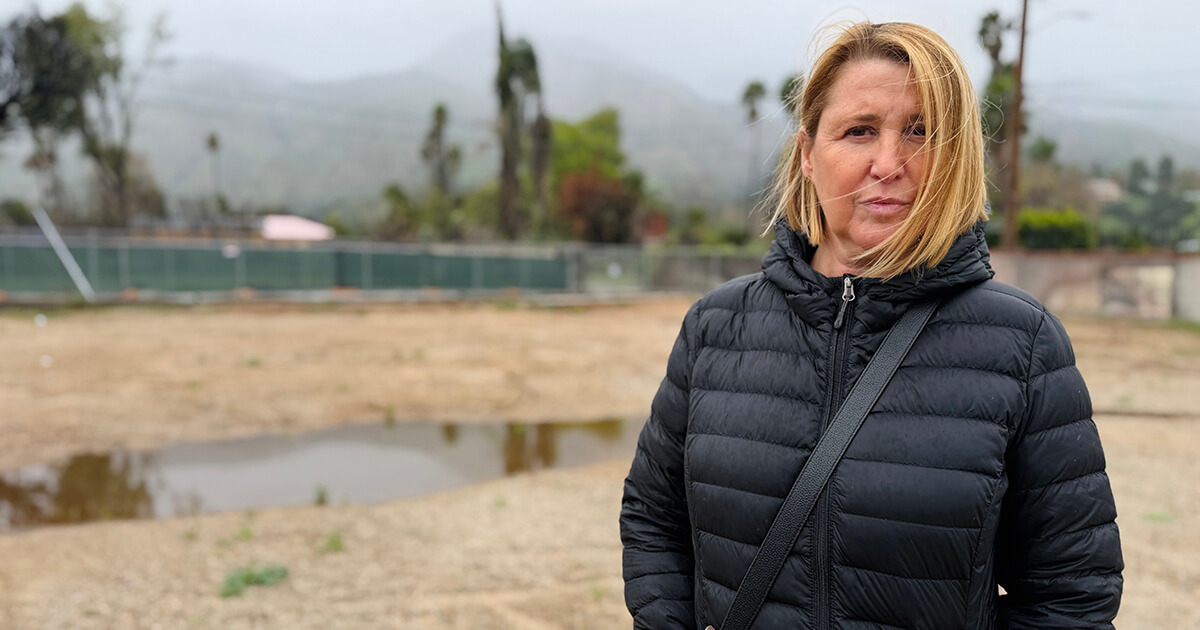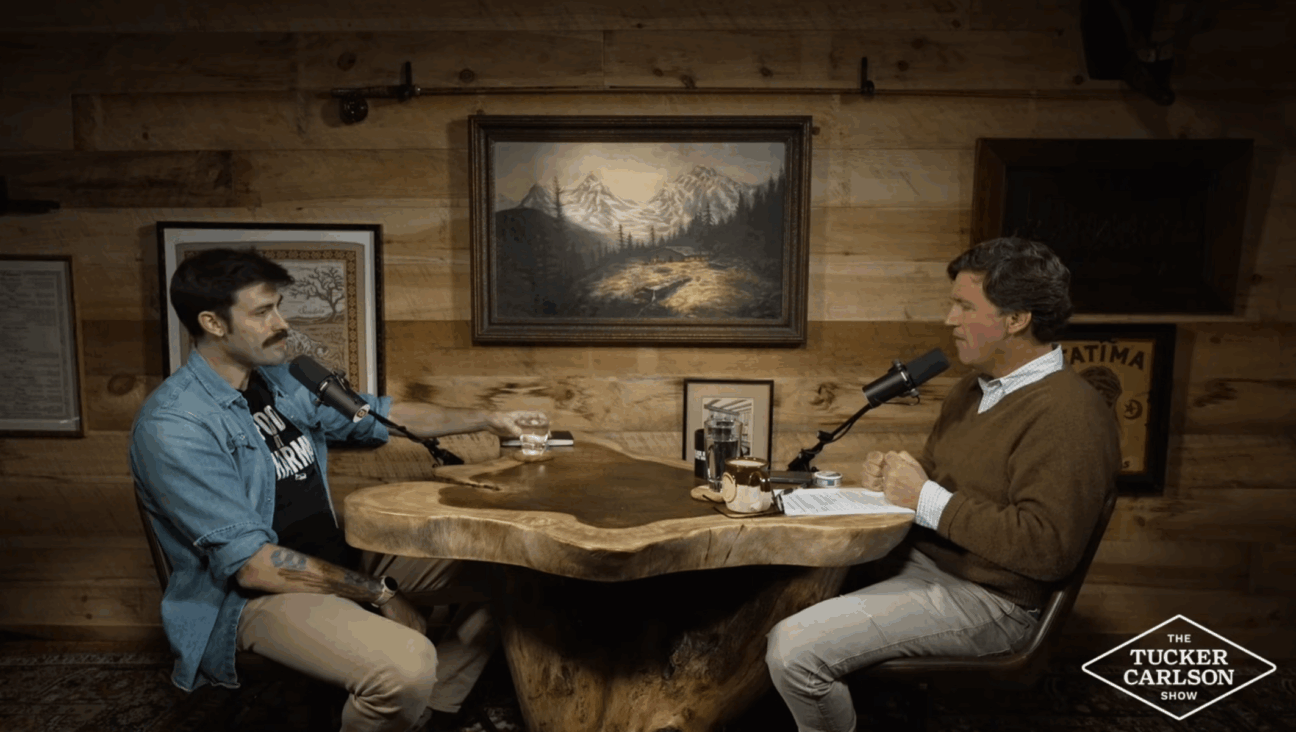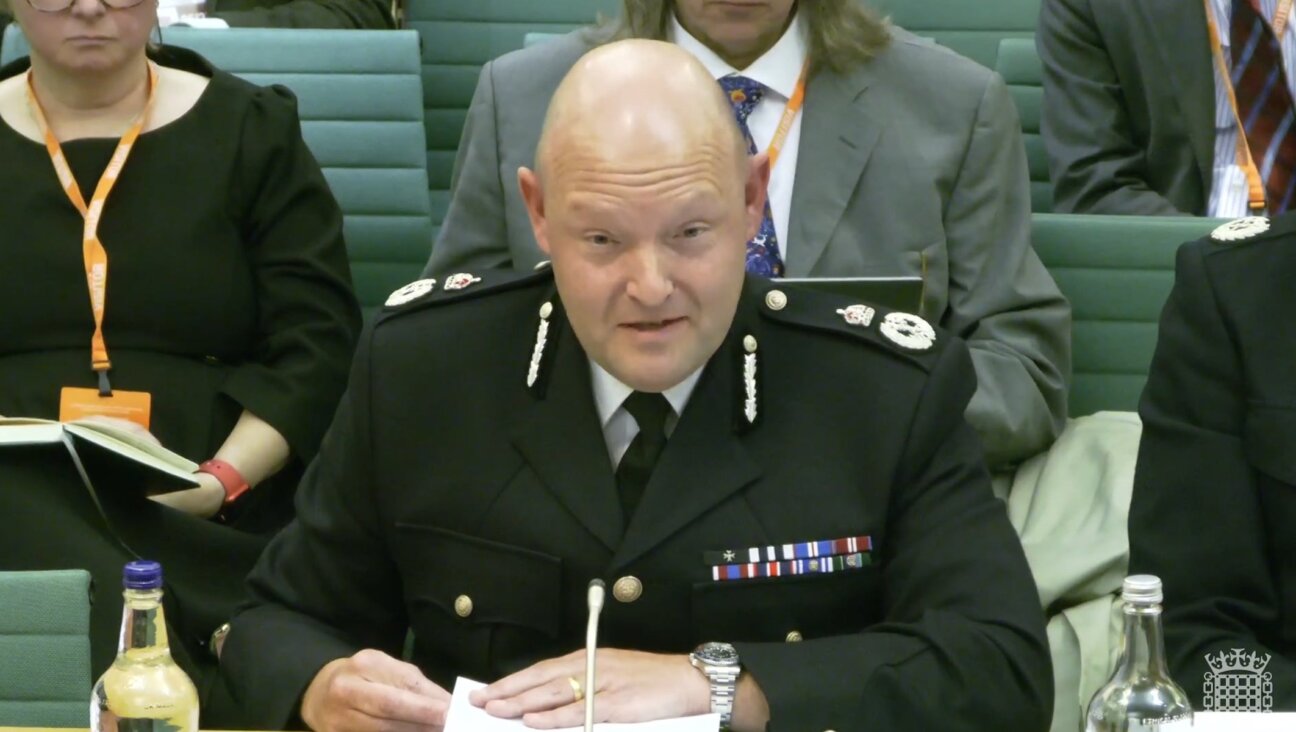Mayor Bernie Sanders and the Chabad Menorah
(JTA) — Jews have lately bemoaned Bernie Sanders’ lack of Jewish pride — but back when he was mayor of Burlington, Vermont, Sanders let Chabad “feel the Bern.”
Or at least he fought for Chabad’s right to burn Hanukkah candles on city land.
Sanders’ backing for the display of a menorah outside Burlington City Hall made national headlines in the 1980s, but had been forgotten until last week, when Chabad.org editor Dovid Margolin rediscovered the story. Margolin is researching the history of menorah displays in the United States.
Sanders first allowed the display of an 8-foot-tall menorah for one night of Hanukkah in 1983, at the request of Rabbi Yitzchak Raskin, then newly installed as the Chabad movement’s emissary to Vermont.
In Margolin’s telling, Sanders was a ready and happy participant in the first lighting:
On December 1, 1983, in front of a crowd of about 35 Jewish students from the University of Vermont, he came out to the steps of City Hall, donned a kippah, flawlessly read the blessings aloud, and lit two candles, corresponding to the second night of Chanukah.
READ: Why Bernie Sanders’ historic victory is no big deal to Jews – or America
The ceremony became an annual event, and in 1986, Raskin asked Sanders if he could keep a 16-foot-tall menorah in City Hall Park throughout the eight days of Hanukkah. Sanders sought a legal opinion, and given a green light, he gave Chabad the nod.
The American Civil Liberties Union, now a Sanders ally (it scored him as high as 93 percent during his congressional career), protested in 1987 and sued in 1988. Sanders did not back down and defended the menorah placement in the courts through 1989, his last year as mayor and the year an appellate court ruled that the menorah could not appear in front of City Hall.
In some ways, the menorah battle highlights qualities Sanders, now an Independent senator from Vermont, has displayed in his campaign to be the Democratic presidential nominee.
His willingness to deviate from leftist orthodoxy is perhaps best known in his rejection of some policies favored by gun control groups, most notably his opposition to holding accountable gun shops for crimes committed with their merchandise. His appetite for litigation is most recently evident in his lawsuit against the Democratic National Committee for actions he says favor his rival, Hillary Rodham Clinton.
What’s notable is how warmly Sanders seemed to embrace his Jewish identity as mayor.
In 1983 and 1985, he also heeded the call by Rabbi Menachem Schneerson, the Lubavitcher rebbe, for presidents, governors and mayors to proclaim an Education Day.
Like other officials, including every president since Jimmy Carter, Sanders issued the annual proclamations to mark Schneerson’s birthday. But unusually, Sanders dated the proclamation according to the Hebrew calendar. In 1985, he even noted that the day fell on the same week as the 850th birthday of Maimonides, whom he described as “binding the principle of reason to human liberation.”
In proclaiming Education Day, Sanders sounded like the socialist he was proud to be. Schneerson, he said, “has sought out the oppressed and materially disadvantaged, thereby effecting their enfranchisement through education.”
Sanders took some predictable hits for his position on the menorah. A local activist with whom he had worked on poverty issues, the Rev. Paul Bortz, wrote him in 1988, “Are you billing Lubavitch of Vermont for legal fees?”
Joseph McNeil, the city attorney, at a news conference in 1987 defending the weeklong presence of the menorah, said the city had received “some unfortunate calls suggesting that, because the governor and the mayor are both Jewish, we might be more inclined to allow a menorah than a creche.” (Gov. Madeleine Kunin, who was indeed Jewish, opposed the display of the menorah on public property.)
In 1983, when Schneerson wrote Sanders to thank him for proclaiming Education Day, the mayor called over one of his closest friends, an Orthodox Jew who then as now teaches philosophy at the University of Vermont, to kvell a little.
Richard Sugarman, interviewed by Chabad.org recalled:
“He says, ‘I got a letter you might be interested in seeing.’ I went over there and read it, and then I asked if he minded if I keep the original letter. I was surprised when he told me, ‘No, this letter is for me, I want to keep it.’”
















